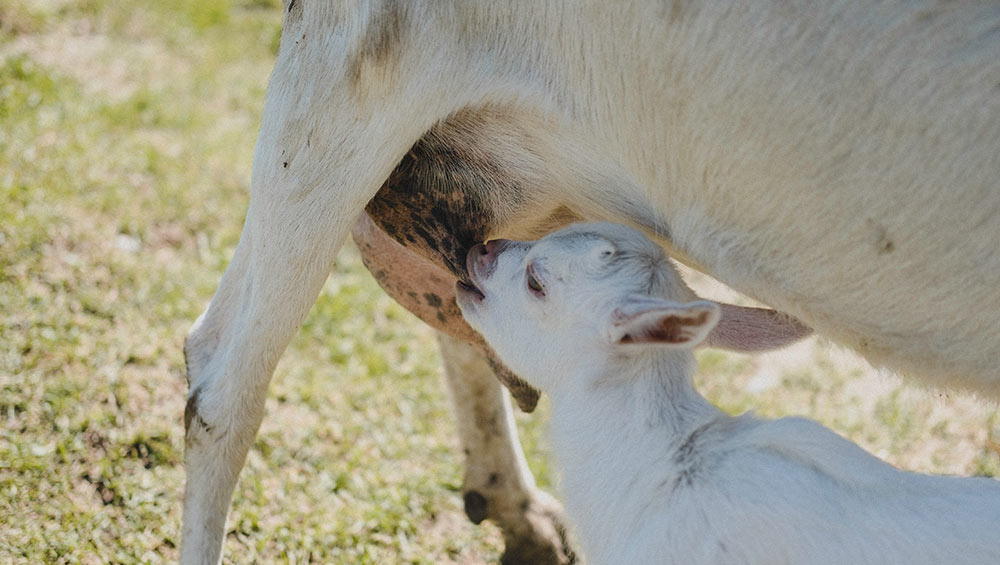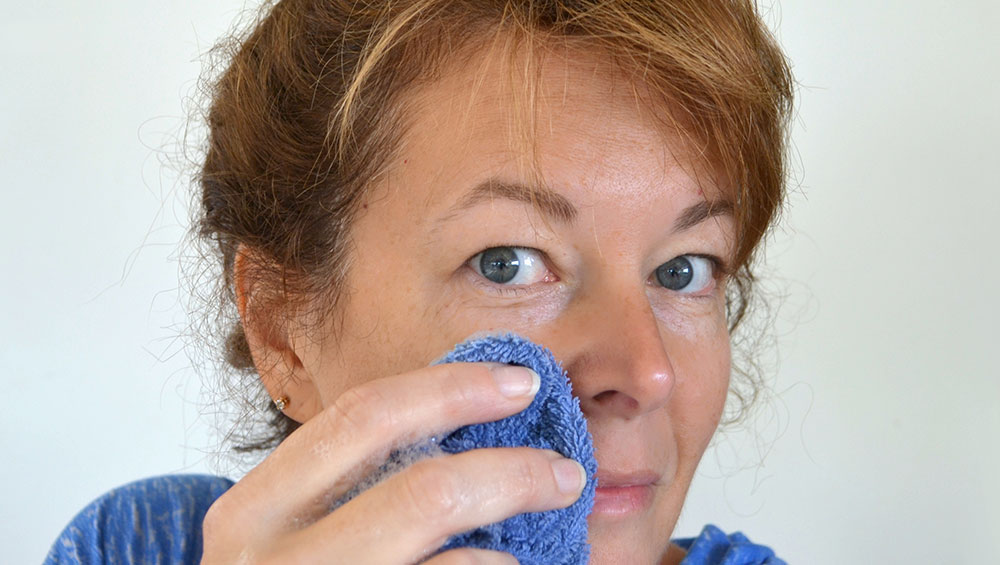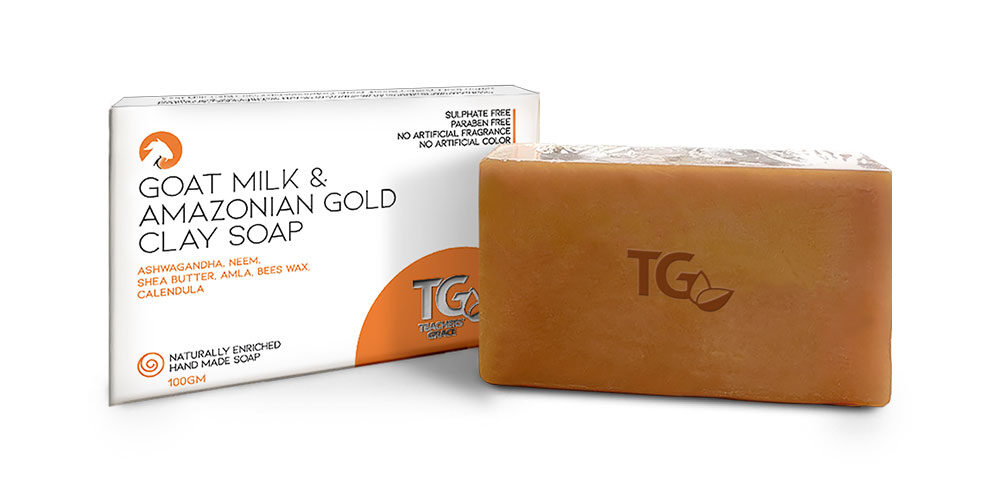No products in the cart.
7 Benefits of Using A Natural Goat Milk Soap For Your Skin
With so many soap options available, determining which one is best for your skin can be difficult. Furthermore, many commercially produced soaps are not genuine soap. According to the FDA, only a few soaps on the market are true soaps, while the vast majority of cleansers are synthetic detergent products. Because of its soothing properties and short ingredient list, goat milk soap has risen in popularity due to the increased demand for natural soaps.
This article will go over everything you need to know about goat milk soap, including its benefits, uses, and whether it can treat skin conditions.
There are numerous soaps available in the market that may aid in skin whitening. However, chemically produced soaps frequently cause side effects that can be harmful to the skin. It is critical to purchase appropriate products for one’s skin type. It is recommended that you try on soaps that will leave your skin thoroughly nourished and soft. Natural soaps have been found to be the most effective on all skin types.
For skin whitening, natural soaps such as goat milk soap are commonly used. If you want to gain both safe and organic benefits, read on to learn more about what makes goat milk soap beneficial for skin whitening.
What exactly is goat milk soap?

Goat milk soap is exactly what it sounds like: goat milk soap. Although it is relatively new, the use of goat milk and other fats in cosmetics and soaps dates back thousands of years. Goat milk soap is made using the traditional saponification method, which combines an acid — fats and oils — with a lye base. In most soaps, lye is made by combining water and sodium hydroxide. However, goat milk is used instead of water when making goat milk soap, allowing for a creamier consistency due to naturally occurring fats.
Because goat milk contains both saturated and unsaturated fats, it is ideal for soap production. Saturated fats increase the lather — or bubble production — of a soap, whereas unsaturated fats provide moisturizing and nourishing properties.
Other plant-based oils, such as olive or coconut oil, can also be used in goat milk soap to increase the content of healthy, nourishing fats.
The Advantages of Goat Milk Soap
Goat milk soap has several beneficial properties to help your skin look and feel great.
1. A mild cleanser

Most commercially produced soaps contain harsh surfactants that can deplete your skin’s natural moisture and oils, leaving it dry and tight. It is best to use products that do not remove the natural fats in the skin barrier to keep your skin’s natural moisture.
Goat milk soap contains a high concentration of fats, particularly caprylic acid, which gently removes dirt and debris while preserving the skin’s natural fatty acids.
2. Nutrient-dense
Goat milk contains many fatty acids and cholesterol, which make up a lot of the skin membrane. Dryness and irritation can result from a lack of these components in your skin. Furthermore, milk is high in vitamin A, a fat-soluble vitamin with anti-aging properties.
Finally, it contains selenium, a mineral that has been shown to support a healthy skin membrane. It may even alleviate psoriasis symptoms such as dry skin.
Nutrient levels in goat milk soap, on the other hand, are largely determined by the amount of milk added during production, which is usually proprietary information. Furthermore, due to a lack of research, it is difficult to know how effective these nutrients are.
3. It may help with dry skin

Dry skin, also known as xerosis, is a condition caused by a lack of water in the skin.
Normally, the lipid barrier of your skin slows moisture loss. As a result, low lipid levels can cause excessive moisture loss and dry, irritated, and tight skin. People with certain dry skin conditions, such as psoriasis and eczema, often have lower levels of lipids in their skin, such as cholesterol, ceramides, and fatty acids.
The lipid barrier must be restored and rehydrated in order to improve dry skin. The high cholesterol and fatty acid levels in goat milk soap may replace missing fats while providing moisture to allow for better water retention.
Furthermore, harsh soaps can deplete the skin’s natural moisture, exacerbating dry skin. Using a gentle, fat-rich soap, such as goat milk soap, can help to maintain and replenish the skin’s moisture.
4. Natural exfoliant
Compounds in goat milk soap may exfoliate your skin. Because of their natural ability to exfoliate, alpha-hydroxy acids (AHAs) are used to treat a variety of skin conditions such as scars, age spots, and hyperpigmentation. Lactic acid, a naturally occurring AHA found in goat milk soap, has been shown to gently remove the top layer of dead skin cells, resulting in a younger-looking complexion. Furthermore, lactic acid is one of the gentlest AHAs, making it a good choice for those with sensitive skin.
5. Aids in the maintenance of a healthy skin microbiome
Goat milk soap may help maintain a healthy skin microbiome, which is a collection of healthy bacteria on the skin’s surface. It does not strip your skin’s natural lipids or healthy bacteria due to its gentle dirt-removing properties. Maintaining your skin’s microbiome improves its barrier against pathogens, potentially preventing acne and eczema.
In addition, goat milk contains probiotics such as Lactobacillus, which is responsible for the production of lactic acid. It has been demonstrated to have anti-inflammatory properties in the body, including the skin.
However, there is no research on goat milk soap and the skin microbiome, so more research is needed. Using this soap, however, is likely to be a better option than soap made with strong and harsh surfactants that strip the skin’s natural barrier.
6. Acne prevention

Goat milk soap may help control or prevent acne due to its lactic acid content. Lactic acid is a natural exfoliant that gently removes dead skin cells, aiding in acne prevention by keeping pores free of dirt, oil, and excess sebum. Furthermore, goat milk soap is gentle and may help keep the skin moist. Unlike many face cleansers, which contain harsh ingredients that can dry out the skin, potentially leading to excess oil production and clogged pores, this one does not.
7. Goat milk soap aids in the healing of sun-damaged skin
Photoaging, or sun damage to your skin, can be caused by excessive sun exposure. Wrinkles, hyperpigmentation (freckles and dark spots), and fine lines can all be caused by photoaging. Goat milk contains vitamin A, which has been shown to significantly improve fine lines, wrinkles, and other signs of sun damage. Topical vitamin A (retinoids) causes microscopic changes in the skin and stimulates collagen growth. Collagen is a structural protein that has been shown to aid in treating photoaged skin. The vitamin A in goat milk soap can also aid in the treatment of acne, the production of healthy skin cells, skin healing, and the prevention of follicular hyperkeratosis.
TEACHERS’ GRACE GOAT MILK & AMAZONIAN GOLD CLAY SOAP is a handcrafted bar soap free of harsh detergents and harmful chemicals.
The lactic acid component of pure goat milk aids in skin cleansing by removing impurities. This specially designed soap contains natural ingredients such as Shea Butter, Beeswax, and herbal extracts of Calendula, Neem, Ashwagandha, Amla, Lavender Oil, Coconut Oil, and Ylang Ylang Oil, in addition to Goat Milk and Gold Clay. These ingredients are known to brighten and beautify the skin naturally.
TEACHERS’ GRACE GOAT MILK & AMAZONIAN GOLD CLAY SOAP is the most natural soap available. It is an excellent soap for people of all ages who have naturally sensitive skin, particularly children and the elderly. So go and give it a try.


